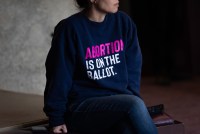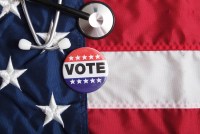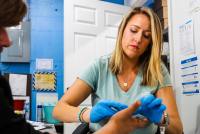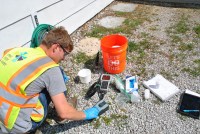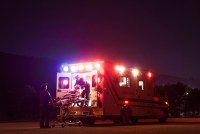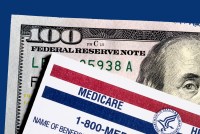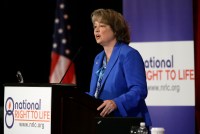Latest KFF Health News Stories
Hospitals Cash In on a Private Equity-Backed Trend: Concierge Physician Care
Hospitals are increasingly stretching a velvet rope, offering “concierge service” to an affluent clientele. Critics say the practice exacerbates primary care shortages.
California Is Expanding Insurance Access for Teenagers Seeking Therapy on Their Own
A California law that takes effect this summer will grant minors on public insurance the ability to get mental health treatment without their parents’ consent, a privilege that their peers with private insurance have had for years. But the law has become a flashpoint in the state’s culture wars.
Adolescentes podrían ir al psicólogo sin tener el permiso de sus padres
Según la nueva ley en California, los jóvenes podrán hablar con un terapeuta sobre la identidad de género sin el consentimiento de sus padres. Pero no podrán recibir tratamiento residencial, medicación o cirugía de afirmación de género sin el visto bueno de sus padres, como han sugerido algunos opositores.
As money flows to abortion rights initiatives in states, some donors focus on where anger over the “Dobbs” ruling could propel voter turnout and spur Democratic victories up and down the ballot, including in key Senate races and the White House.
America Worries About Health Costs — And Voters Want to Hear From Biden and Republicans
The presidential election is likely to turn on the simple question of whether Americans want Donald Trump back in the White House. But health care tops the list of household financial worries for adults from both parties.
Horse Sedative Use Among Humans Spreads in Deadly Mixture of ‘Tranq’ and Fentanyl
Illegal supplies of fentanyl are being cut with xylazine, a powerful horse tranquilizer. Overdoses involving this veterinary sedative are growing nationally and now Florida officials are tracking the deaths.
Early Detection May Help Kentucky Tamp Down Its Lung Cancer Crisis
After a decade of work, a Kentucky program launched to diagnose lung cancer earlier is beginning to change the prognosis for residents by catching tumors when they’re more treatable.
New York Joins Local Governments in Erasing Billions in Medical Debt
New York City is the latest jurisdiction to buy and forgive a backlog of unpaid medical bills for its residents. Local governments across the country, including in the Chicago area, are doing the same to reduce debt burdens for lower-income residents.
Insurance Doesn’t Always Cover Hearing Aids for Kids
California’s governor vetoed a bill extending insurance coverage for kids with hearing loss, but most states now require it.
What the Health? From KFF Health News: The Supreme Court vs. the Bureaucracy
The Supreme Court this week heard oral arguments in a case that could radically alter the way federal agencies — including the Department of Health and Human Services — administer laws passed by Congress. A decision in the case is expected this spring or summer. Meanwhile, the Biden administration is struggling over whether to ban menthol cigarettes — a move that could improve public health but also alienate Black voters, the biggest menthol users. Joanne Kenen of Johns Hopkins University and Politico Magazine, Lauren Weber of The Washington Post, and Rachel Cohrs of Stat join KFF Health News chief Washington correspondent Julie Rovner to discuss these issues and more. Also this week, Rovner interviews Darius Tahir, who reported and wrote the latest KFF Health News-NPR “Bill of the Month” feature about a lengthy fight over a bill for a quick telehealth visit.
The Year in Opioid Settlements: 5 Things You Need to Know
In the past year, opioid settlement money has gone from an emerging funding stream for which people had lofty but uncertain aspirations to a coveted pot of billions being invested in remediation efforts. Here are some important and evolving factors to watch going forward.
Inside the Pentagon’s Painfully Slow Effort to Clean Up Decades of PFAS Contamination
Cost estimates balloon and complications mount as the Defense Department grapples with PFAS pollution at hundreds of its bases and surrounding communities.
Deep Flaws in FDA Oversight of Medical Devices, and Patient Harm, Exposed in Lawsuits and Records
Thousands of medical devices are sold, and even implanted, with no safety tests.
As Foundation for ‘Excited Delirium’ Diagnosis Cracks, Fallout Spreads
Major policy changes and disavowals have made this a watershed year for curbing the use of the discredited “excited delirium” diagnosis to explain deaths in police custody. Now the ripple effects are spreading across the country into court cases, state legislation, and police training classes.
People With Disabilities Hope Autonomous Vehicles Deliver Independence
A pilot project in northern Minnesota aims to pave the way for fully autonomous vehicles to offer independence for people who can’t drive.
Dodging the Medicare Enrollment Deadline Can Be Costly
As open enrollment ends, many people are tuning out. They could wind up with a surprise next year: higher costs and less access to health care providers.
Adultos mayores, detectives contra avisos engañosos de Medicare Advantage
Funcionarios de los Centros de Servicios de Medicare y Medicaid le han pedido a las personas mayores y a otros miembros de la comunidad que sean detectives contra el fraude, denunciando tácticas de venta engañosas al 800-MEDICARE.
Uncle Sam Wants You … to Help Stop Insurers’ Bogus Medicare Advantage Sales Tactics
The Biden administration wants to crack down on deceptive or misleading Medicare Advantage and drug plan sales tactics. It’s counting on beneficiaries to help catch offenders.
Anti-Abortion Groups Shrug Off Election Losses, Look to Courts, Statehouses for Path Forward
Anti-abortion groups have lost seven consecutive elections on state ballot measures about abortion. They say they’re unfazed and plan to keep focusing on lawmakers and courts to notch wins.
Out for Blood? For Routine Lab Work, the Hospital Billed Her $2,400
Convenient as it may be, beware of getting your blood drawn at a hospital. The cost could be much higher than at an independent lab, and your insurance might not cover it all.





